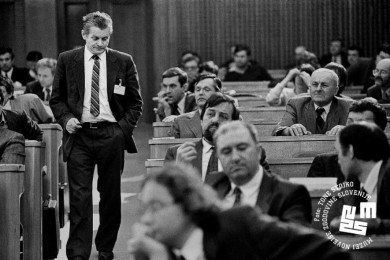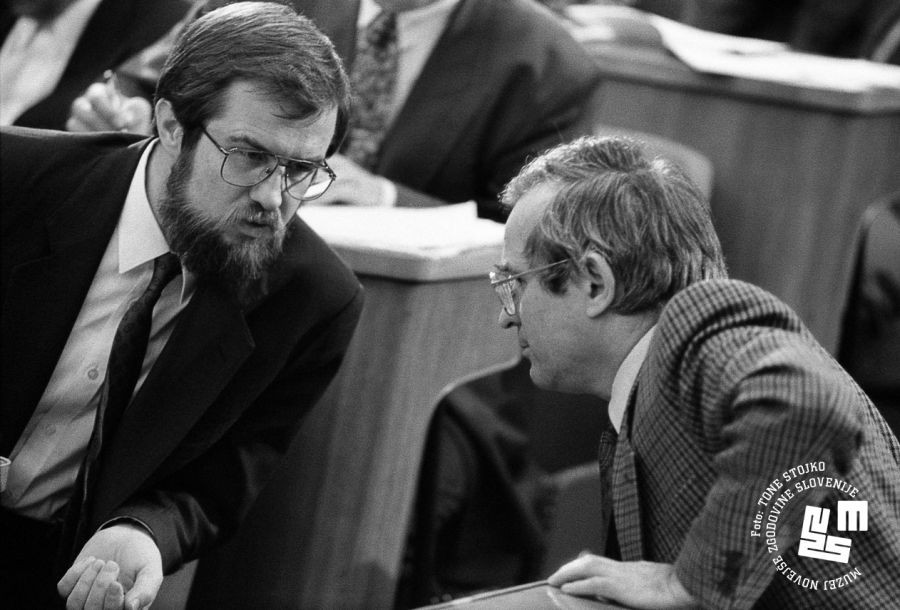17. 1. 1991: When Slovenia reacted to the Gulf War
The Government reassures Slovenians
The Slovenian crisis unit met early in the morning. Among other things, they discussed the war’s impact on the Slovenian economy, the safety of the Krško Nuclear Power Plant and what should be done if nuclear weapons were used and radioactive contamination reached Slovenia.
Maks Bastl, Minister of Trade, reassured Slovenians that our stock of fuel, food and medications was good, and that Slovenia could only be affected by a long-term crisis. The Petrol company also ensured that the fuel supply would not be interrupted due to the war.
Could the Yugoslav People's Army take advantage of the Gulf War?
Slovenians were also worried about the Yugoslav People's Army initiating military action in Slovenia and Croatia under cover of the Gulf War. According to a survey by the Delo newspaper, 42.6 per cent of Slovenians believed that this could happen. Information that the Serbs living in Croatian Krajina asked the Yugoslav People's Army for help on the same day the Gulf War broke out meant that their fear was not completely irrational.
The question of what to do if a migrant wave from the Arab countries occurred also arose. As reported in Delo, the Government made assurances that an influx of migrants could be readily contained at the airports.
Opposition to the Gulf War
Emil Milan Pintar of the Party of Democratic Reform and President of the Opposition Shadow Government also spoke out and expressed his disapproval of the allied attack on Hussein’s Iraq, saying, "We are appalled that the logic of industrial and military complexes and that of the strategists of oil monopolies has prevailed once more as they see the threat of war as a form of marketing...". He added that militancy, a professional military structure or the "myth of Slovenian military power" should not be enforced in independent Slovenia.
Jožef Školč, President of the Liberal Democracy of Slovenia, warned against the end of the civilisation in the worst-case scenario and Dušan Plut, President of the Greens of Slovenia and member of the Presidency of the Republic of Slovenia, was also against the attack on Iraq, stating that it was too hasty.
The opposition: the Government siding with the Americans
In the Assembly, the opposition accused the Government of siding with the Americans instead of remaining neutral. Socialist deputy Jože Smole was critical of Janez Janša, Minister of Defence and Head of the Gulf Commission within the Government, that he was not informing the deputies about crisis scenarios.
According to Delo, Smole also warned the Slovenian Government "against provincial and emotional assessments" regarding the occupation of Lithuania (author’s note: interventions of the Soviet Armed Forces in Lithuania) and its comparisons with the occupation of Czechoslovakia in the summer of 1968.
DEMOS behind closed doors
In the shadow of the Gulf War, DEMOS met behind closed doors at the premises of the Slovenian Government in the late afternoon. After the meeting, Prime Minister and President of the Slovenian Christian Democrats, Lojze Peterle, stated that no changes would occur among the ministers of his Government, as people were predicting.
Jože Pučnik, President of the DEMOS Council, added that the Council would now meet regularly every week and a draft of a new agreement between the parties was adopted: DEMOS would be transformed from the united opposition into a cross-party coalition.
A Habsburg in Slovenia
Otto von Habsburg, Member of the European Parliament for the Christian Social Union of Bavaria, visited Slovenia on 17 January. In his address to the Slovenian Assembly, he advocated Slovenia’s incorporation in the European integration and completed his speech by saying, "God bless free and independent Slovenia in free Europe."
Author: Aleš Žužek
Similar articles
-
Triumphant Year of 1991
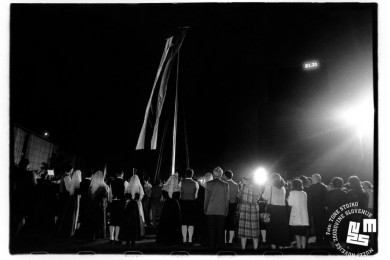
-
9. 5. 1991: Facilitated processing of independence laws
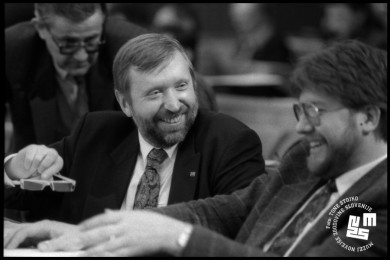
-
2. 3. 1991: Slovenians abroad and around the world in concern for Slovenia
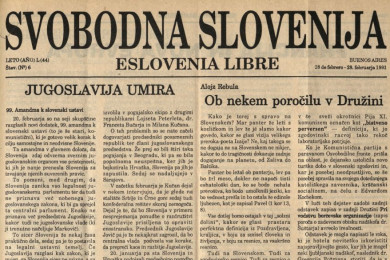
-
1. 3. 1991: Franco Juri against the transfer of conscripts to the Slovenian Territorial Defence
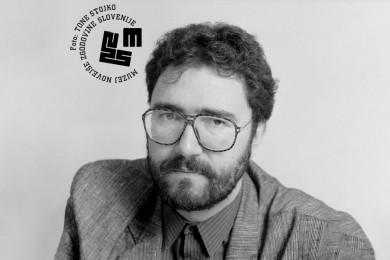
-
28. 2. 1991: Prepared defence and protection act proposal to ensure a plebiscite decision
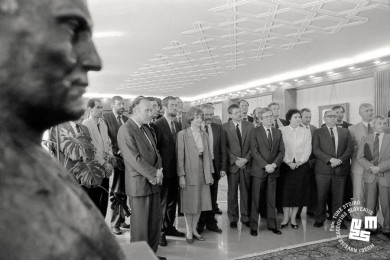
-
27. 2. 1991: The persistently looming red star
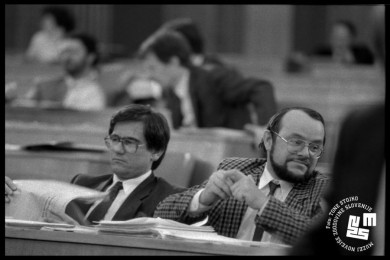
-
26. 2. 1991: A hopeless search for the Yugoslav modus vivendi
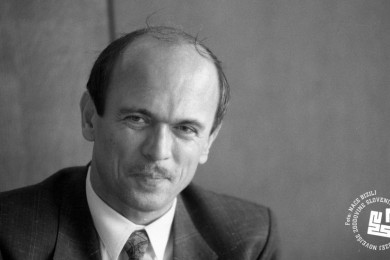
-
16. 2. 1991: Ciril Ribičič on the red star and reservations about the dissolution of Yugoslavia
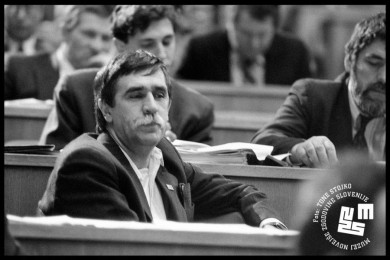
-
15. 2. 1991: Two thirds of respondents have faith in an independent Slovenia
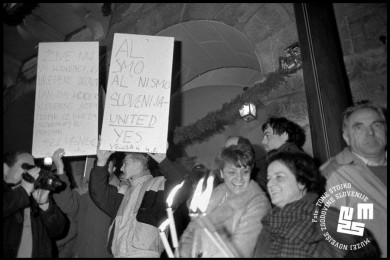
-
27. 1. 1991: Between a relaxation of tensions at home and a deteriorating situation in the Middle East
